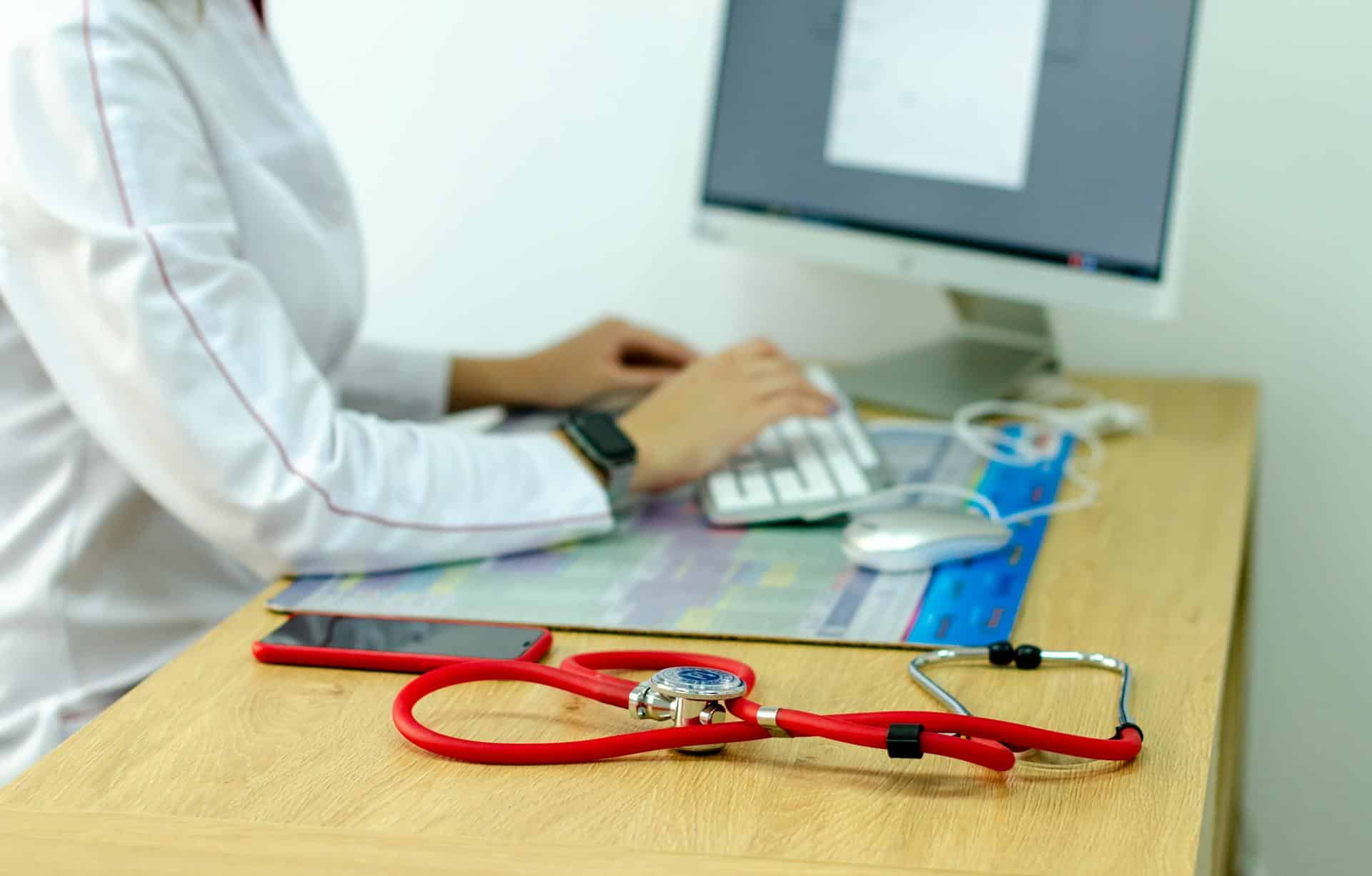Medical bills are charged for any medical services you receive—with or without medical insurance. And if you have medical debt, you are likely not alone; 23 million people (nearly 1 in 10 adults) owe significant medical debt.1 11 million owe more than $2,000, and 3 million people owe more than $10,000.2
After leaving the hospital, you may be aware that you have something to pay, but the actual bill may not arrive until a week or even months later.
When that happens, it can be very easy to lose or forget about unpaid medical bills. But what can you do if it’s been a long time, and you cannot remember who you owe the money to or how much? Unpaid medical debt does not just go away, and it is important to pay the funds you owe! Here are some ways to find unpaid medical bills.
Check Your Credit Reports for Medical Debt
Medical bills by themselves will not show up on your credit reports from each consumer reporting agency, which means they generally impact your credit score or credit scores. However, if the hospital, clinic, etc., decide to send those bills to a debt collector/debt collection agency, it will be a part of your credit history and, therefore, credit reports. And so, if you want to make sure you don’t have lingering unpaid medical debt, checking your credit reports from all three credit bureaus will help.
You can get a free annual credit report from each one of the credit bureaus online. Equifax, Experian, and Transunion are the major credit bureaus that offer consumer credit reports for Americans. If you are unsure how to read your credit reports from the credit bureaus, learn how to do so before ordering them.
Once you know how much you owe, paying the collections account off as soon as possible is best. Having an account in collections will really hurt your credit scores and can stay on your credit reports for a few years.
How Do I Identify Medical Debt on My Credit Report/Credit Reports?
When you review your credit report, look for entries from collection agencies. These entries often mention the original creditor (like a hospital or clinic) and the amount owed. They might be located around the middle or end of your report. Be sure to check all three credit reports from the credit bureaus.
What Should I Do if I Find an Error Related to a Medical Bill on My Credit Report/Credit Reports?
First, contact the credit bureau that issued the report and file a dispute. Next, reach out to the medical provider or collections agency to resolve the discrepancy.
If I Pay off a Medical Debt That Went to Collections, Will My Credit Score Instantly Improve?
Paying off a collections account can improve your credit score, but it won’t remove the account from your credit report. The mark will remain on your report for up to seven years but will be marked as “paid,” which is viewed more favorably than an unpaid account.
Check All Your Mail for Medical Debt
In most cases, your medical bills will be mailed to your residential address. But, you may have missed a medical bill because you simply do not go through your mail for that kind of stuff. And so, no matter how old your mail is, if you have it, definitely go through any that looks like it was from a medical provider—including lab work companies!
Also, if you have recently moved and haven’t changed your address, you should check your old residence for any potential mail.
Log in to Your Online Portals
If you have a network of hospitals/health care providers you visit, you probably were instructed to create a login with your email or phone number so you can log into their online portal. Most hospitals have this so you can set up appointments online, check prescriptions, and sign paperwork online instead of in the waiting room.
You should also be able to see any medical balances you have left to pay and what they are for. And so, if you are unsure if you have a medical bill, you can start your search by logging online to one of these portals.
Listen to Your Old Voicemails
Some medical practice places may also contact you via phone on top of the mail. Unfortunately, most of us no longer answer unknown numbers, which means we may miss important phone calls, including calls about medical debts owed. So, it may be helpful to go back and listen to your voicemails; you may find a medical bill you forgot about in your voicemail box.
Contact Hospitals You Had Care In
Another thing you can do is to contact clinics or hospitals in which you can remember having care. With some basic information about yourself, such as your name, birth date, and address, a medical receptionist can tell you whether you owe money to that particular place for medical care.
Call Your Health Insurance Company
Medical insurance is one of the many ways that most Americans pay for medical services. If you have health insurance, contacting your insurance company can be helpful when looking for an unpaid medical bill. Whenever you seek medical care, the medical provider will be asked whether you have insurance, and if you do, they will send some of the bills to the insurance company.
So, your medical insurance company should have a record of any medical bills they paid partially or give you an idea of what healthcare provider to start with when looking for an unpaid bill.
Can I Be Sued for Unpaid Medical Debt or a Medical Bill?
Unfortunately, if the medical debt is passed into a collections agency or debt collector, you can be sued for unpaid medical debt. This can entail a legal process, including a hearing to attend. In most cases, the medical debt collections company may work out a payment plan or lump sum.
What About Cosmetic Medical Debt and Procedures?
For any medical debt that comes from cosmetic medical procedures, you may not see medical bills like you would with other procedures. Sometimes, you may have to pay for the entire procedure beforehand. However, if you finance the procedure, you may have other bills to pay.
Here are some medical procedures that can fall under the cosmetic category:
| Procedure | Description |
| Rhinoplasty | Surgical reshaping of the nose to improve appearance. |
| Liposuction | Surgical removal of excess fat from specific areas. |
| Facelift | Surgical procedure to lift and tighten facial skin. |
| Botox Injections | Non-surgical treatment to reduce wrinkles and lines. |
What Do I Do If I Am Getting a Bill for Paid Medical Debt?
Medical providers and medical insurance companies can definitely make billing errors. And so, if you know you have paid your medical bills, call your insurance or medical provider to clear things up—you should never have to pay the same bill twice because of incorrect bills! Having bank statements, credit card statements, etc., showing proof of payment will definitely help.
What Should I Do If I Cannot Pay Medical Debts?
Medical bills affect the finances of Americans from all walks of life. If you have a chronic illness, have major surgery, or stay in a hospital for even one night, you could owe thousands of dollars even more for uninsured patients. If you have a medical bill you cannot pay, there are options to help; here are some options to consider:
Consult With a Billing Advocate for Medical Bills
A billing advocate is like a financial advisor for your medical bills. They can negotiate and contact medical providers for you to help save you money and work out a plan to pay off your medical debt. They may also have more experience asking for things like an itemized bill, which can significantly lower your owed amount.
Talk to Medical Collections at Your Doctor’s Office About Your Medical Debt
One of the most important things you can do if you are struggling to pay your medical debt is to contact the billing/medical collections part of your hospital/clinic. In most cases, medical collections will be willing to work out some kind of payment plan option with you, which can lower the monthly minimum payment for your medical bills and increase the installment amounts.
Staying active on your payments can prevent the hospital from turning to debt collectors, which you want to avoid!
Look Into Financial Assistance for Medical Debts
Another thing you can consider is looking into financial assistance programs. There are government programs you can look at when facing financial difficulties, along with charities/non-profit organizations that may help you take care of your medical debt.
Consider Different Financial Products for Medical Costs
Loan or credit options can also work as an option to pay off medical debts. Many people turn to CareCredit when they need to finance medical procedures, which is a specialized credit card for healthcare expenses. With good credit, you can also turn to standard credit cards, standard personal loan options, or other loans from a bank or credit union.
Borrowers with bad credit can look into secured credit cards, or bad credit personal loans. When taking out a bad credit loan, it is important to avoid the high-interest loan types, so you may want to stay away from payday loans and title loan lenders.
Start Crowdfunding
Crowdfunding is online fundraising to which friends, family, acquaintances, and strangers can donate. GoFundMe is an extremely popular platform you can use to set up crowdfunding for free. With this in place, anyone can contribute as little or as much as they can. Over time, all of these donations can really make a difference in your medical bills. In fact, many GoFundMe campaigns have raised hundreds of thousands of dollars!
FAQs
Yes, many medical providers are open to discussions, especially if you’re experiencing financial hardships. It’s always worth asking if they can offer a reduced amount or a more manageable payment plan.
While both can impact your credit score, medical debt usually doesn’t start affecting your credit until it’s passed to a collection agency.
Yes, but it varies by state. Generally, after a certain period, medical debt becomes “time-barred,” meaning you can’t be sued for it. However, the debt can still remain on your credit report and affect your score. If you’re concerned about old medical debt, it’s best to consult with a legal expert in your state.
Typically, the account will be marked as “settled” or “paid for less than the full amount” on your credit reports. While this is better than an unpaid account, it still may be viewed less favorably than an account paid in full.
Not immediately. Medical bills usually don’t impact your credit score until they are sent to collections. If you pay them before this step, they typically won’t affect your score.
Some newer models for credit scores, like FICO 9, give less weight to unpaid medical collections than other types of collections on your credit history. However, not all lenders use these newer models, so it’s still essential to be proactive about handling medical debt.
Yes! Once you’ve paid off the debt for your medical expenses, especially if it was with a collections agency, your credit score may begin to improve over time. Make sure to keep all payment records and check your credit report regularly to ensure it reflects these changes.
CreditNinja’s Thoughts on Unpaid Medical Bills
Paying your medical bills is important; however, at CreditNinja, we want you to know there are several avenues that you have to get expensive medical bills paid or at least on a path toward being paid off. Talk to your healthcare provider and medical insurance provider for options.
References:
- The burden of medical debt in the United States | Peterson-KFF Health System Tracker
- 1 in 10 Adults Owe Medical Debt, With Millions Owing More Than $10,000 | KFF
Nooreen brings over nine years of experience as a financial writer and editor, including six years in FinTech and three years at CreditNinja. Nooreen earned her BA in English Language and Literature. She is a member of the American Bankers Association® Frontline Compliance program, having completed over 24 ABA certification programs. Her professional skill set also includes certifications in email marketing and a certificate in UX writing and design.






